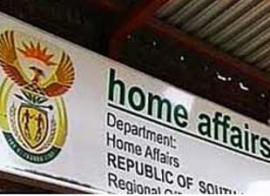
The Department of Home Affairs (DHA) has received over 85 000 applications and will soon interview candidates for its project to digitise civil documents.
The DHA working with the Department of Employment and Labour advertised job opportunities to recruit 10 000 unemployed young graduates to make digital copies of paper records.
According to the department, of the 85 820 applications received, 23 374 have qualified to be assessed and interviewed.
The new digitisation programme was first announced by President Cyril Ramaphosa during the State of the Nation Address (SONA) in February 2022, which forms part of his Presidential Employment Stimulus (PES).
“The Department of Home Affairs will recruit 10 000 unemployed young graduates for the digitisation of its civic paper records, enhancing their skills and contributing to the modernisation of citizens services,” the President said during SONA.
The DHA has collaborated with the Department of Employment and Labour to use its online recruitment platform, the Employment Services of South Africa (ESSA).
According to the Chief Director for Employer Services, Esther Tloane, several teams at Labour Centres and provincial offices are hard at work to screen, verify and ensure that qualifying candidates are shortlisted ahead of interviews expected to begin soon.
Launching the recruitment project on 11 August, Home Affairs Minister, Dr Aaron Motsoaledi, said the department has more than 350 million civic paper records relating to birth, marriage, deaths and amendments.
“The category of records date back to 1895, which necessitate care and reliable systems that will bear tolerance for the digitisation purposes,” the department said on Tuesday.
These records are in all provinces, the bulk of which are located in Gauteng, the North West and the Western Cape.
The venture is expected to run over three years, effective from November 2022 until October 2025.
According to the department, the recruitment drive will be divided into three phases:
Phase one – Recruitment of the first intake of 2 000 unemployed youth graduates. This cohort will assume duty on 1 November 2022.
Phase two – Recruitment of 4 000 unemployed youth graduates. This cohort will assume duty in January 2023.
Phase three – Recruitment of 4 000 unemployed youth graduates. This cohort will assume duty in April 2023.
According to the department, unemployed youth should be qualified in Information Technology or Document, Information and Records Management, obtained from institutions of higher learning such as universities, universities of technologies and Technical Vocational Education and Training (TVET).
Successful youth will be paid a stipend ranging from R5 000 for entry-level positions to R9 500 for technical support level positions and R14 250 for manager-level positions. This group will be required to sign a three-year contract linked to the duration of the project.
Tloane said the department was putting the final touches in the process leading to interviews and placements.
In addition, she said her department has received 7 739 enquiries relating to the digitisation project and 7 523 had been responded to.
“In the advancement of equity I am, however, worried that we are getting few candidates of people with disability,” she stressed.
Successfully candidates will be subjected to suitability checks including citizenship, credit, criminal and qualification verification.
How to apply
Prospective candidates, who meet the criteria, should register on the ESSA recruitment platform found on the department’s website at www.labour.gov.za and those that do not have internet access should visit their nearest Labour Centre.
Candidates that are already registered on ESSA do not have to visit the Labour Centres and can apply for these positions online. – SAnews.gov.za


